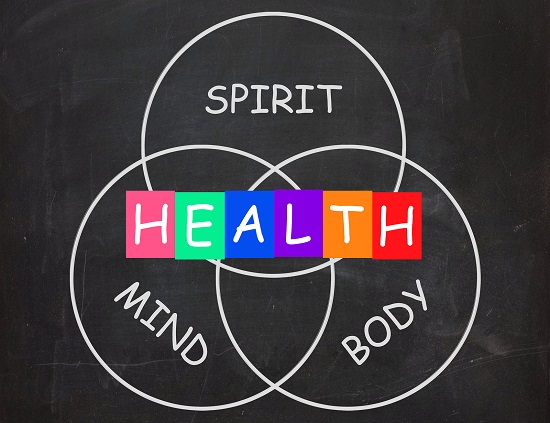The object of the conference is to explore the link between health and spirituality, and well-being. What is the interplay here and how might this be encouraged? This will be explored though talks and open panel discussion with the speakers and guest panellists, Dr Natalie Tobert and Dr Dagmar Corry.
The Religious Experience Research Centre at the University of Wales Trinity Saint David is currently conducting a research seminar series on the topic, culminating in a conference planned there on Spirituality and Well-being on 1st July – and it is hoped that this one-day conference on the 18th June will make a contribution to the Lampeter study and conference.
Further information:
Revd. Dr. Jeff Leonardi – Counselling, health and spirituality

Health, healing, holiness and wholeness all share a common root meaning. In psychological terms healing amounts to being made whole i.e. it is about psychological wholeness. In the Person-centred approach to counselling and psychotherapy, one of the essential core conditions of a therapeutic relationship is congruence, the matching of the inner and outer being of the therapist, and this is the goal for the client (who is conceived, initially at least, to be in a state of incongruence). In the presence of the other core conditions: empathy and unconditional positive regard, the client can move from incongruence to congruence, from divided to whole.
Revd. Dr Jeff Leonardi is the Religious Experience Research Centre’s Honorary Research Fellow at the University of Wales Trinity Saint David, Lampeter. Together with Professor Bettina Schmidt, Director of the RERC (UWTSD), he is currently organising a series of events around the topic Health and Spirituality in Lampeter – including a one-day conference on Spirituality & Wellbeing on the 3rd July 2016 at the University. Dr Leonardi is a graduate of the University of East Anglia with a PhD on person-centred approach to Spirituality. He is a retired Bishop’s Adviser for Pastoral Care and Counselling, Diocese of Lichfield, and his particular research area is counselling and spirituality in the UK. His present research seeks to broaden that focus to include the spiritual dimension which can be present in therapeutic relationships.
Dr. Peter Fenwick – The significance of meditation practices in our understanding of spirituality. A new thrust towards health

Meditation has moved from being the domain of the odd-ball scientific researcher to a widely-used instrument for promoting health-care. The neuroscience of meditation is now well-developed and we have a good understanding of the brain circuits involved in meditative practices and how these function to improve health and mental well-being. This has coincided with studies on spiritual happiness and well-being and the changes in mental states which underpin these. A third factor is the ability of modern technology to measure and interact with physiological processes in the brain. These three areas will be discussed, together with the implications for the development of future health care.
Dr Peter Fenwick is Consultant Neuropsychiatrist Emeritus to the Epilepsy Unit at the Maudsley Hospital, which he ran for twenty years. He is presently Emeritus Senior Lecturer, at the Institute of Psychiatry Kings College London and Southampton University, and Emeritus Consultant Clinical Neurophysiologist at Broadmoor Special Hospital for the Criminally Insane. From 2000 to 2009 he spent several months a year working in the field of magnetoencephalography in a neuroscience research laboratory in Japan. Dr Fenwick has a long standing interest in brain function and the problem of consciousness and has published a large number of research papers related to altered states of consciousness, and abnormalities of consciousness and behaviour, NDEs and end of life experiences. He has researched into meditation and continues to be interested in the relationship between meditative states, cognition and brain function.
Conference Panel Discussion
Following the talks, the panel discussion with the speakers and the further respected scientists with expertise in the relevant fields of interest, Dr Natalie Tobert and Dr Dagmar Corry, will be open for contributions from the floor.
Dr Natalie Tobert is a medical anthropologist, who has done original fieldwork research in India, Sudan and UK. She has created a Spiritual and Cultural Equalities Training Resource for staff and students in medicine and healthcare, and specialises in facilitating participatory seminars in hospitals, medical schools and universities.
Dr Dagmar Corry is a lecturer and visiting research fellow at Glyndŵr University, where she has recently designed a blended childhood psychopathology module with emphasis on wellbeing and resilience. She specialises in advanced research methods; counselling psychology; culture, religion and spirituality in applied psychology and psychotherapy; and developmental, health and positive psychology.
Address: The Essex Unitarian Church, 112 Palace Gardens Terrace, London W8 4RT, United Kingdom
Cost: £35.00 AHT and SMN members; £40.00 non-members; £15.00 students



